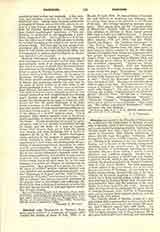

Drechsel (also DREXELIUS or DREXEL), JEREMIAS, ascetic writer, b. at Augsburg, August 15, 1581; entered the Society of Jesus July 27, 1598; d. at Munich, April 19, 1638. He was professor of humanities and rhetoric at Augsburg and Dillingen, and for twenty-three years court preacher to the Elector of Bavaria. His writings enjoyed an immense popularity. Chief among them are his “Considerationes de «ºternitate” (Munich, 1620), of which there were nine editions; in addition to these Leyser printed 3200 copies in Latin and 4200 in German. It was also translated into English (Cambridge, 1632; Oxford, 1661; London, 1710 and 1844) and into Polish, French, and Italian. His “Zodiacus Christianus” or “The Twelve Signs of Predestination” (Munich 1622), is another famous book, but there seems to have been an edition anterior to this; in 1642 eight editions had already been issued and it was translated into several European languages. “The Guardian Angel‘s Clock” was issued first at Munich, 1622, and went through seven editions in twenty years; it was also translated extensively. “Nicetas seu Triumphata conscientia” (Munich, 1624) was dedicated to the sodalists of a dozen or more cities which he names on the title page; “Trismegistus” was printed in the same year and place; “Heliotropium” or “Conformity of the Human with the Divine Will” came out in 1627; “Death the Messenger of Eternity” also bears the date of 1627. His fancy for odd titles shows itself in other books also. Thus there are the “Gymnasium of Patience”; “Orbis Phaëton, hoc est de universis vitiis Linguae”. The only work he wrote in German was entitled “Tugendtspregel oder Klainodtschatz” (Munich, 1636). He has also a “Certamen Poeticum”; “Rowe selectissimarum virtutum”; “Rhetorica Coelestis”; “Gazophylacium Christi”. There are in all thirty-four such books. Other works are: “Res bellicae expeditionis Maximiliani” (1620), and some odes and sermons.
T. J. CAMPBELL

